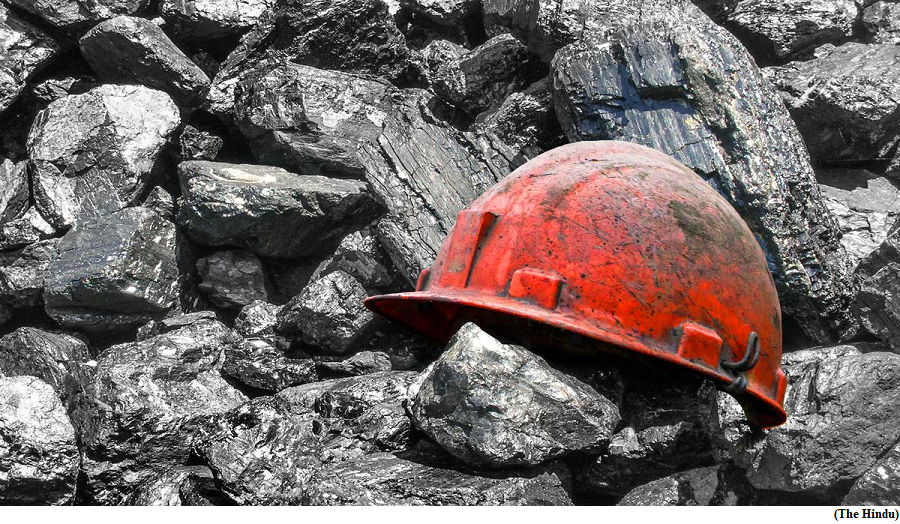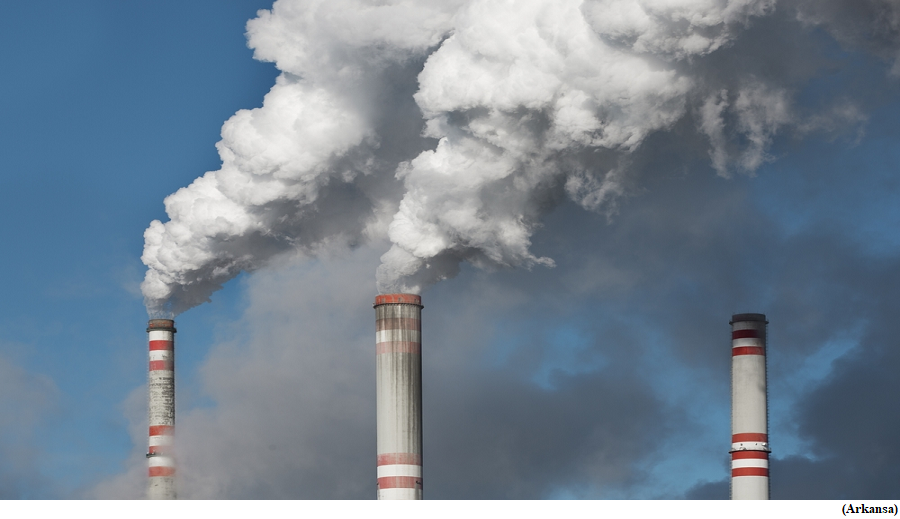Equity concerns in banning fossil fuel extraction (GS Paper 3, Environment)

Context:
- The inadequate response from governments and corporations in dealing with the issue of climate change is leading to not only a dramatic rise in climate change litigation in many parts of the world but is also resulting in growing momentum that is in favour of phasing out of fossil fuel subsidies and the banning of the extraction of fossil fuel itself.
- Momentum is also growing in favour of a Fossil Fuel Non-Proliferation Treaty.
Coal elimination treaty:
- There is a proposal in academic literature which sets out the case for a coal elimination treaty by 2030 with the aim of phasing out the mining and the burning of coal.
- The rationale behind this is linked to the Production Gap (Production Gap Report, or PGR 2023) that exists between the plans by fossil fuel producing countries to produce 110% more fossil fuels by 2030 and their incompatibility with the goal of the Paris Agreement 2015 to keep warming below 1.5° Celsius as compared to pre-industrial levels.
Phasing out fossil fuel:
- The element of phasing out fossil fuel emerged for the first time in the United Nations Framework Convention on Climate Change (UNFCCC) at COP26 in Glasgow, in 2021, which made a reference to phasing down unabated coal power and phasing out inefficient fossil fuel subsidies.
- COP28 in Dubai in 2023, in Dubai, also adopted a decision relating to the transitioning away from fossil fuels in energy systems, so as to achieve net zero emissions by 2050 in keeping with the science.
- It appears logical that to achieve the long-term temperature goal set at Paris and avert climate disruption, fossil fuel production cannot continue unabated.
- The question that remains to be answered is how to align these proposals with the anchor sheet principles of the climate change regime; the Common but Differentiated Responsibilities and Respective Capabilities (CBDR-RC) and Nationally determined contributions (NDC).
Equitable phasing out of fossil fuels:
- The UNFCCC, the Kyoto Protocol and the Paris Agreement are aimed at the reduction of greenhouse gases and removal by sinks in conformity with the CBDR-RC.
- The latter, governed by the criteria of per capita emissions, historic emissions made by a developed country party and the financial and technological resources (which a developed country commands as compared to a developing country), faces serious challenges when applied in the context of fossil fuel extraction.
- Those countries that are heavily dependent on revenues and employment in the fossil fuel sector are likely to experience serious difficulties in transitioning away from fossil fuel.
- For instance, there are countries such as Canada, the United States and the United Kingdom which are less dependent on revenues from fossil fuel, as they have a more diversified economy (non-fossil fuel income to cope with transitional costs) together with higher per capita income, and thereby greater capacity to transition away from fossil fuels.
- In contrast, there are countries such as Azerbaijan, Congo, Iraq, Nigeria, Oman, and Timor Leste that are heavily dependent on fossil fuels for government revenue and with economies that are relatively less diversified, thereby giving them limited capacity to transit. These countries cannot be expected to take the lead in phasing out fossil fuel.
International law and fossil fuel:
- In the international legal system, a state is within its rights to use natural resources lying within its territory for its economic development. But this is accompanied by a caveat not to cause significant harm to another state when a natural resource is trans-boundary in nature.
- The prevention of harm to another is a due diligence obligation, and a state has to undertake all appropriate measures in light of the magnitude of the proposed project having trans-boundary consequences.
Pulp Mills Case:
- The obligation has been largely tested in international water course situations and the International Court of Justice (ICJ, 2010) in the Pulp Mills Case described conducting trans-boundary environmental impact assessment (EIA) as part of customary international law.
- This duty is linked to a bilateral situation and its application in the context of a global commons is so far unclear, which amounts to saying that a state cannot be expected to undertake EIA for extraction of fossil fuel for its effects on the global environment other than local.
- Scholars from the West are taking a legally ill-founded plea that states are required to conduct an EIA for their fossil fuel extraction to prevent global warming.
India’s situation:
- Fossil fuel continues to dominate India’s power sector. Nearly 3.6 million people in 159 districts are rooted in the fossil fuel economy through direct or indirect jobs related to the coal mining and power sector.
- A country such as India, which is facing serious unemployment concerns, cannot afford to transit towards cleaner fuel without adequate transition support and creation of suitable economic opportunities and livelihoods for those affected.
- India’s subsidies on kerosene oil have come under scrutiny in the West as it is found to be inconsistent with Article 2(1)(c) of the Paris Agreement and is also considered as inefficient subsidies.
Way Forward:
- In line with the CBDR-RC, India has given a clear hint of a differential time-frame at COP26 when it intervened and succeeded in toning down the language from “phasing out” to “phasing down” unabated coal.
- India must lean on its coalition building strategy with like-minded developing country parties in opposing the hypocrisy of developed country parties since most major fossil fuel producers plan to increase production (this includes Australia, Canada, and the U.S. (as per the PGR) while expecting developing countries to radically shift their economies, with limited support.
Biden govt. sets tighter standards for soot pollution
(GS Paper 3, Environment)
Why in news?
- The U.S. administration is setting tougher standards for deadly soot pollution, saying that reducing fine particle matter from tailpipes, smokestacks and other industrial sources could prevent thousands of premature deaths a year.
- The new Environmental Protection Agency rule finalised as a major step in improving the health of Americans, including future generations.
- Industry groups warned it could lead to loss of manufacturing jobs and even shut down power plants or refineries.

Key Highlights:
- The rule would have $46 billion in net health benefits by 2032, including prevention of up to 800,000 asthma attacks and 4,500 premature deaths.
- The rule will especially benefit children, older adults and those with heart and lung conditions, as well as people in low-income and minority communities adversely affected by decades of industrial pollution.
- The rule sets maximum levels of 9 micrograms of fine particle pollution per cubic meter of air, down from 12 micrograms established a decade ago under the Obama administration.
- The rule sets an air quality level that states and counties must achieve in the coming years to reduce pollution from power plants, vehicles, industrial sites and wildfires.
- The rule comes as Democratic President Joe Biden seeks reelection, and some Democrats have warned that a tough soot standard could harm his chances in key industrial states such as Pennsylvania, Michigan and Wisconsin.
Concerns:
- The industry has used technical improvements to meet previou soot standards and will be able to adapt to meet the new standard as well. Soot pollution has declined sharply in the past two decades, even as the U.S. gross domestic product has increased by more than 50%.
- Significantly lowering the standard for soot emissions “would threaten or prevent modernisation projects and other major improvements to paper mills.



